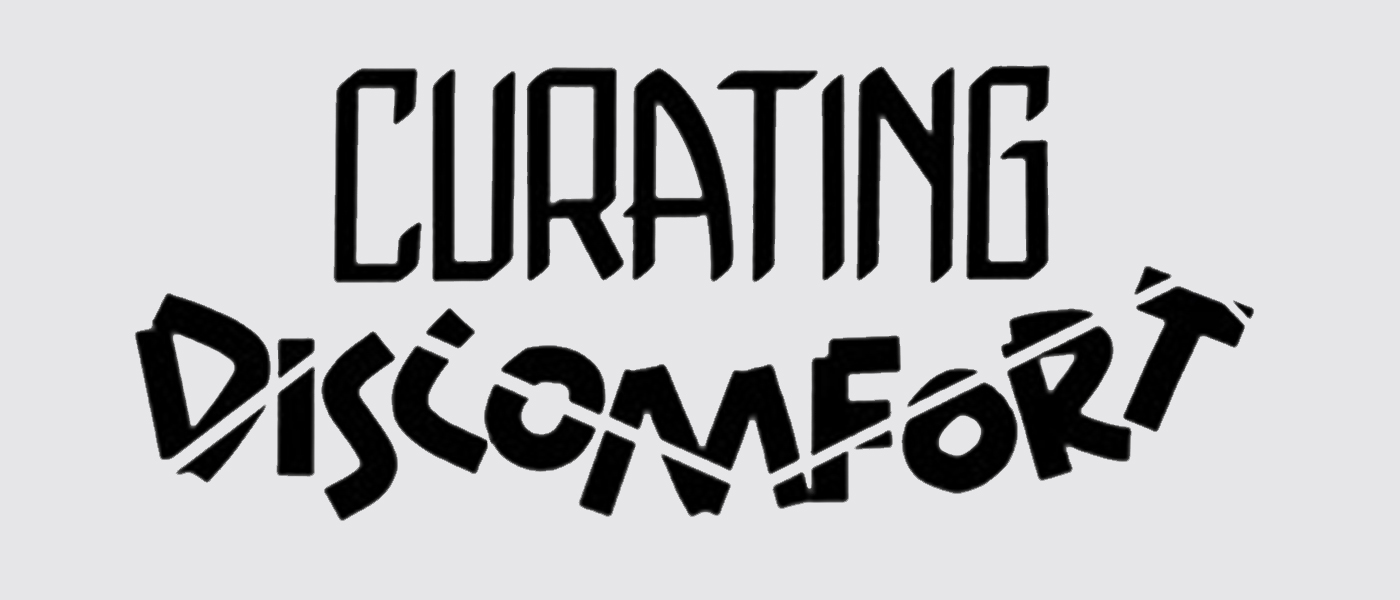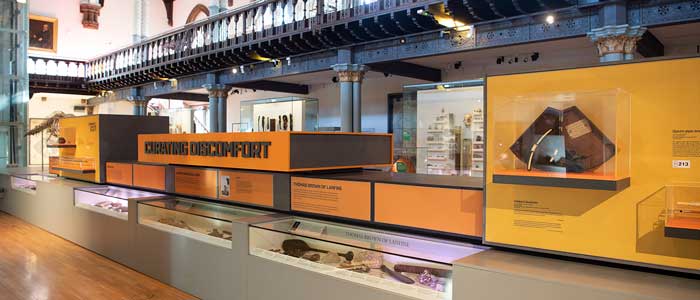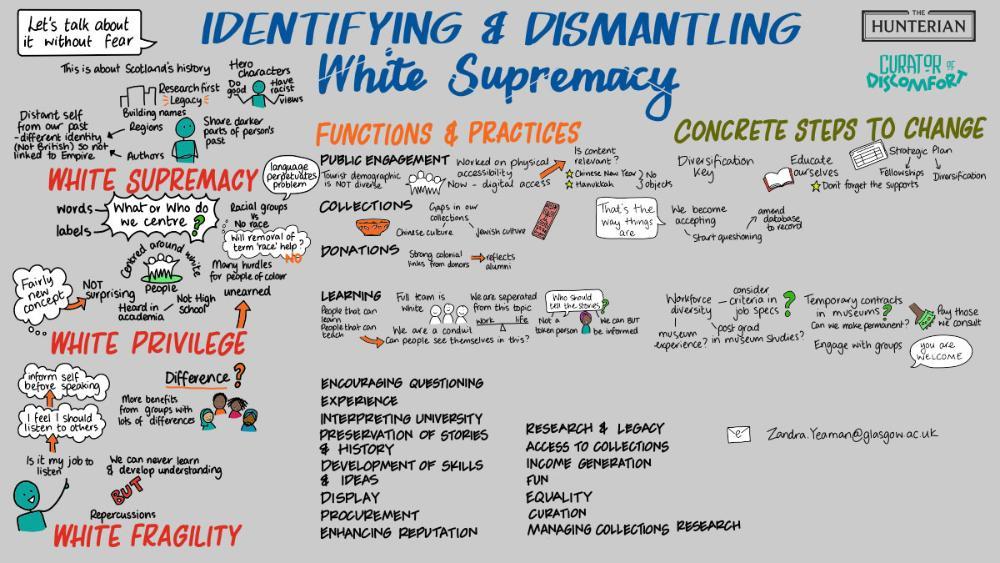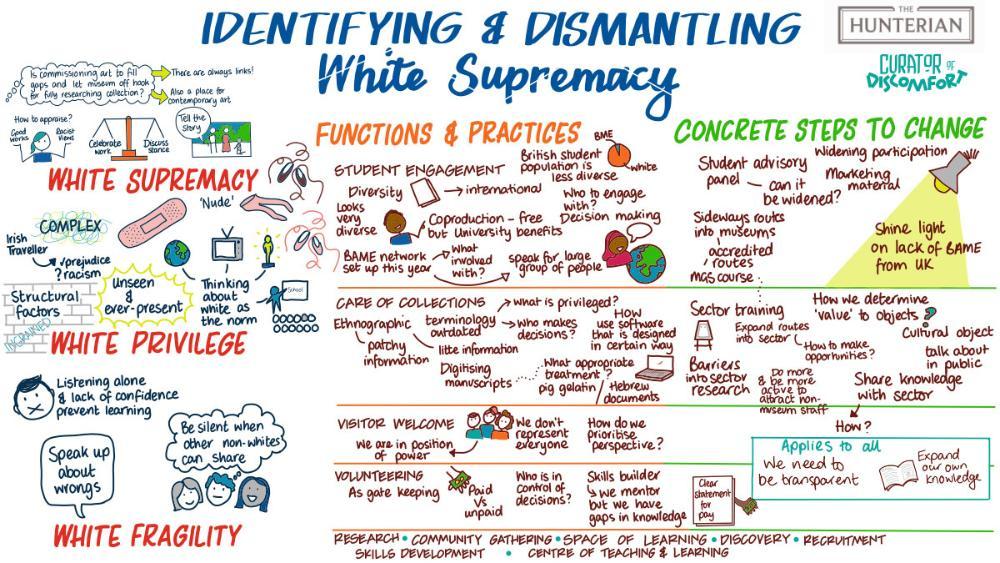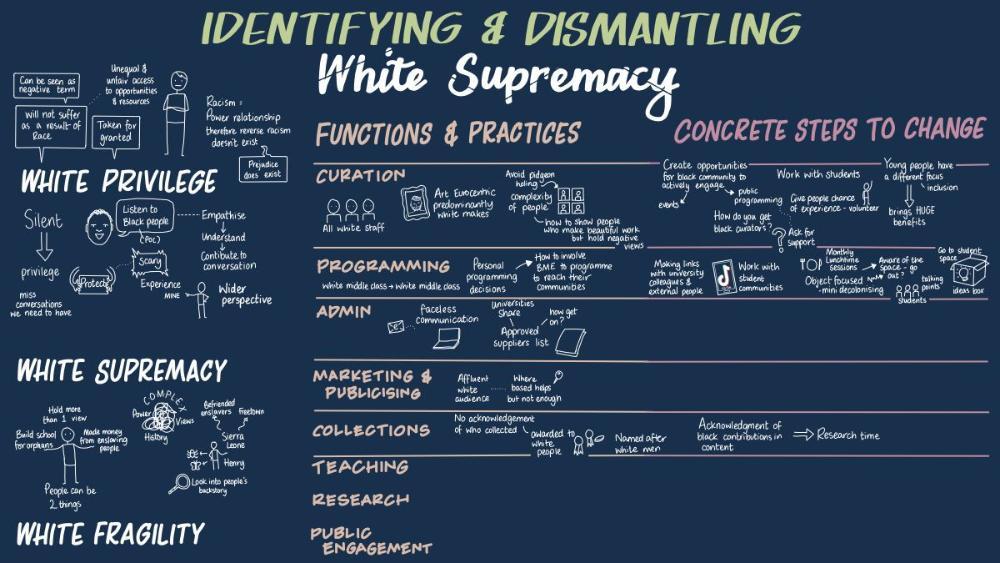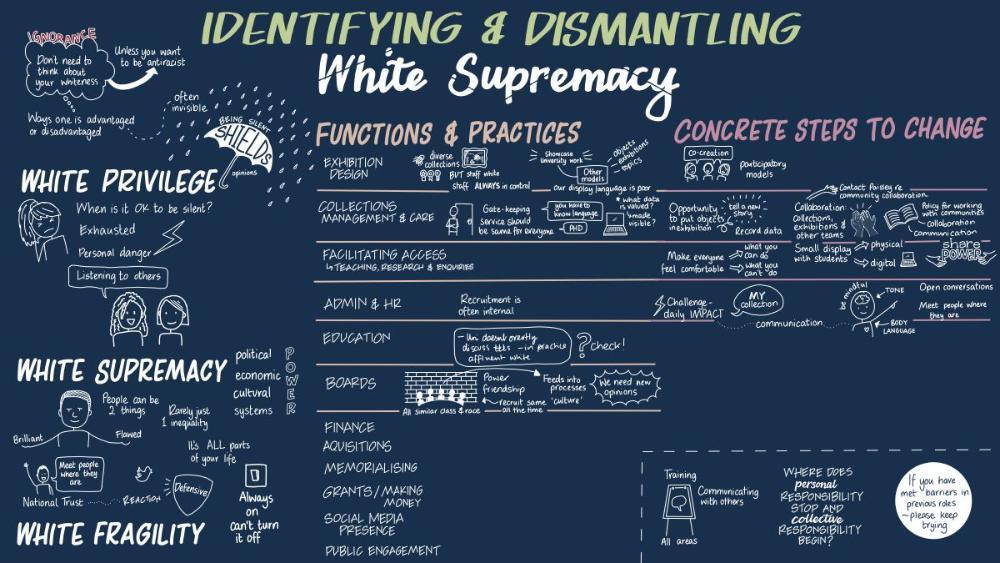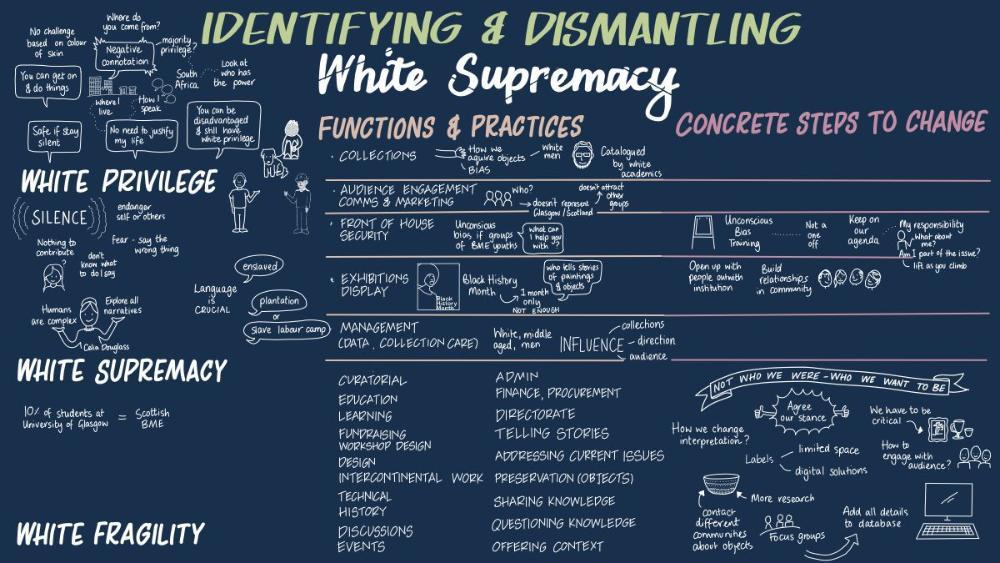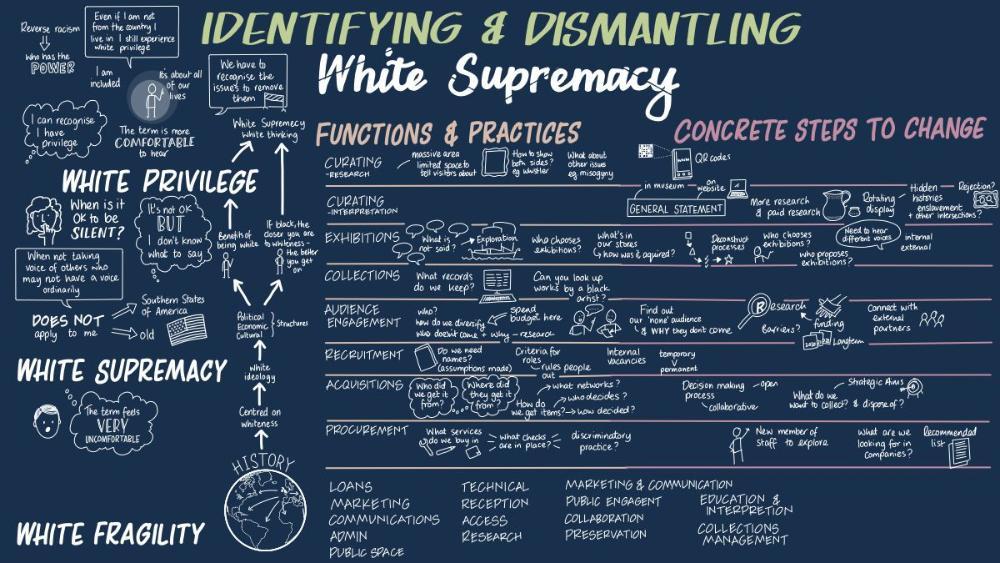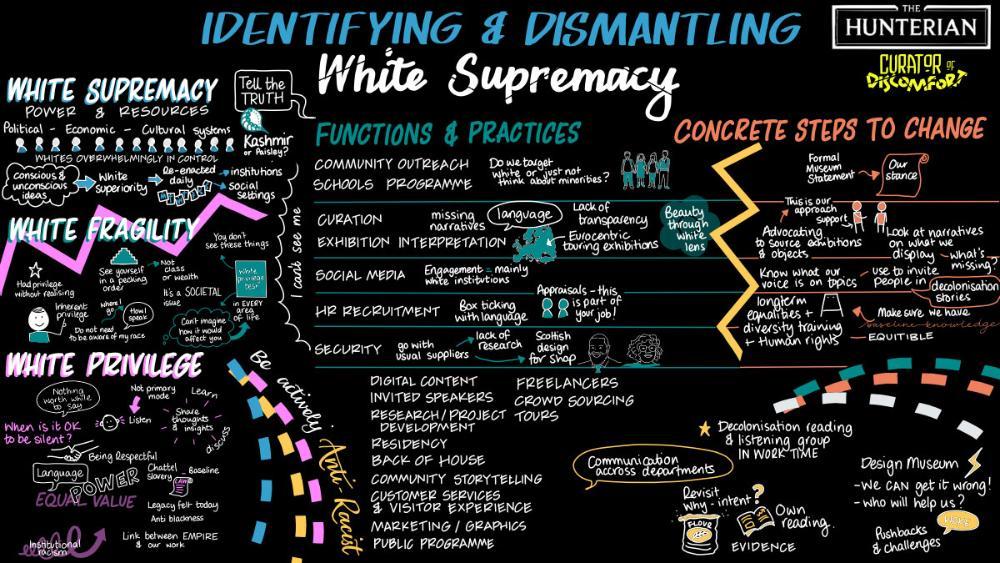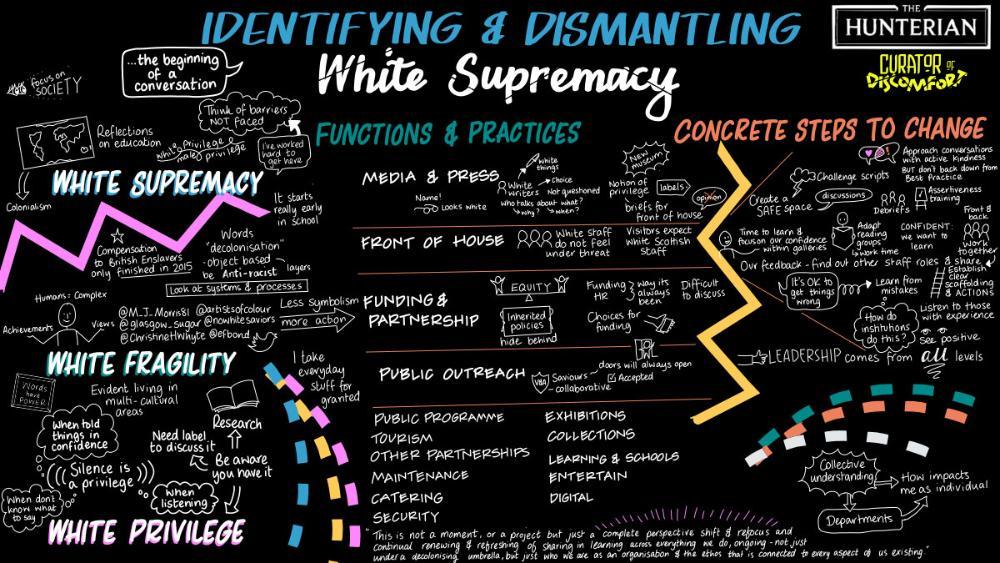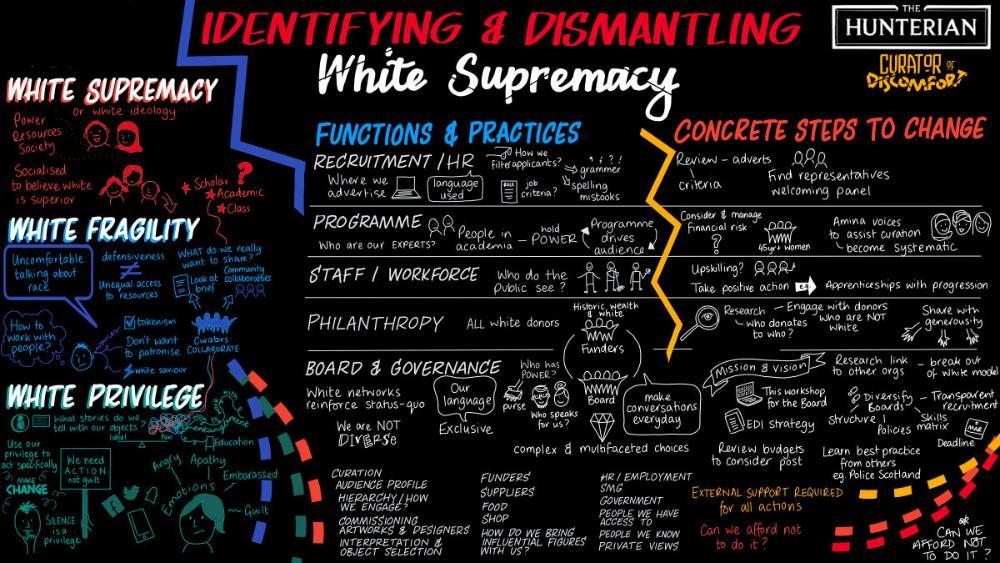CURATING DISCOMFORT

Museums are political places
'Curating Discomfort' puts forward discomforting provocations and interventions to help us think critically about colonial systems, such as the British Empire.
Find out more about this work taking place at The Hunterian.
The Project
Watch our video to find out more about Curating Discomfort.
The Intervention
Find out more about creating the Curating Discomfort intervention.
A Declaration of Discomfort
Most museums are monuments to a system that privileges some people over others and creates a narrative about the identity of nations or cities that institutions seek to project and protect.
Museums hold collections from donors who benefited from the practice of racial slavery, violent endeavours, forced removal and the systematic oppression of indigenous peoples.
Museums are political places.
‘Curating Discomfort’ puts forward discomforting provocations and interventions to help us to understand that museums have perpetuated ideologies of white supremacy: a political, economic and cultural system in which white western ideas control the power of the texts, the material resources and the actions that continue to underpin notions of cultural superiority.
Colonial systems, such as the British Empire, used these ideologies to justify the enslavement and colonisation of peoples and lands around the world. Museums developed within this context and they remain spaces that celebrate and memorialise colonial systems. Collections, displays and labels are a political act that have legacies rooted in colonialism.
We are only now recognising that we are not neutral and that we have, without consideration, been complicit in perpetuating the ideologies of previous centuries.
About the Process
Curating Discomfort was developed by The Hunterian to address historic power imbalances within the museum and across all our activities.
As a starting point to change, Curating Discomfort intervenes in current museum practice to establish new models and narratives around the collection.
It is the start of an ongoing process, striving to embed anti-racist practice into every aspect of our work.
So, what did we do?
Phase 1
Looking on the inside
We explored the motivations The Hunterian has for opening ‘institutional’ and ‘curatorial’ discourses around collections. Why is sharing museum authority with community stakeholders from a range of backgrounds important?
In particular, we wanted to develop ways to ensure that stakeholders who historically are most under-represented are actively included with equity in the interpretation of collections.
Workshops across Scotland
The workshops discussed a brief history of the concepts of race. We explored the system of white supremacy and our part in perpetuating, consciously or not, that system.
Participants identified examples of this system within museums and society today. They explored ways to address the ways that current structures privilege some people over others.
At the end of the workshop participants had a generated a list of actions to address these unearned privileges within the institution and to address the historical bias in the narrative of their displays.
Phase 2
Organisational change
Action planning and organisational change - moving towards becoming a more ethical museum, as expressed in The Hunterian Strategy 2021-25.
Phase 3
'Curating Discomfort' is an intervention, not an exhibition
We invited a group of six people to form the Community Curators group. They are a group from different geographical backgrounds who have been in Glasgow for different lengths of time.
They are academics, community activists, social justice campaigners and educators. They speak to this work as individuals with different interests and priorities. Over six months, they operated as a community to curate an intervention.
The intervention you can see on display in the museum is just one part of the project and the first step towards us making the museum a more relevant and meaningful place for everyone.
Graphic Recordings from Staff Workshops
Click on an image to zoom in.
Meet the Team
Meet the community curators involved in the Curating Discomfort intervention.
Podcasts and Blogs
The Curating Discomfort podcast series explores The Hunterian's collections with academics, community activists, social justice campaigners and educators.
Listen to the Curating Discomfort podcast
The following blogs by Hunterian staff reflect on the Curating Discomfort process:


